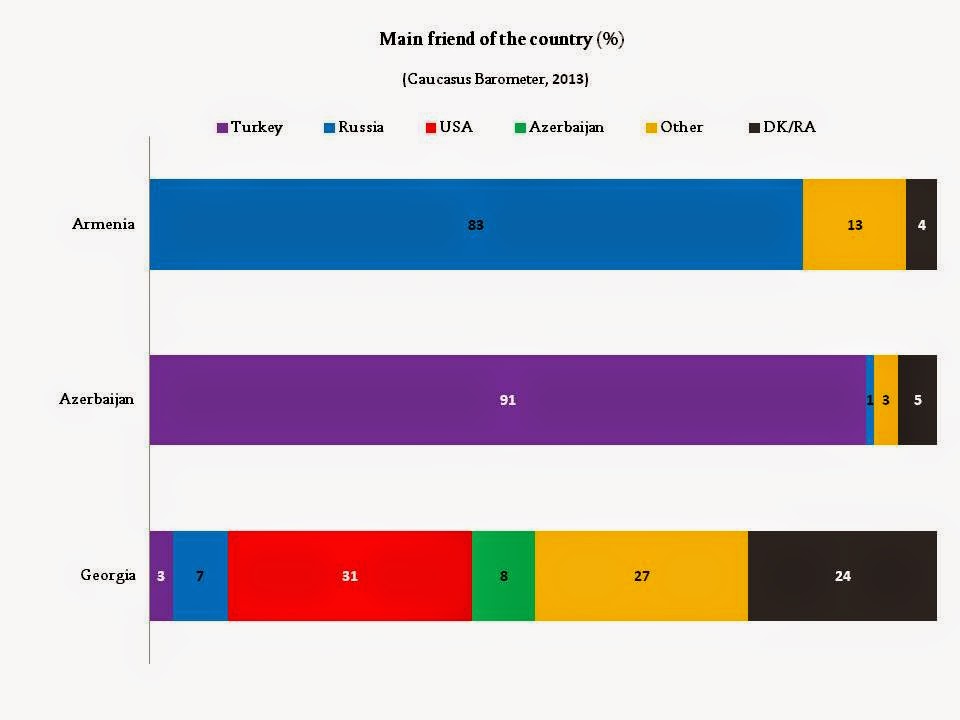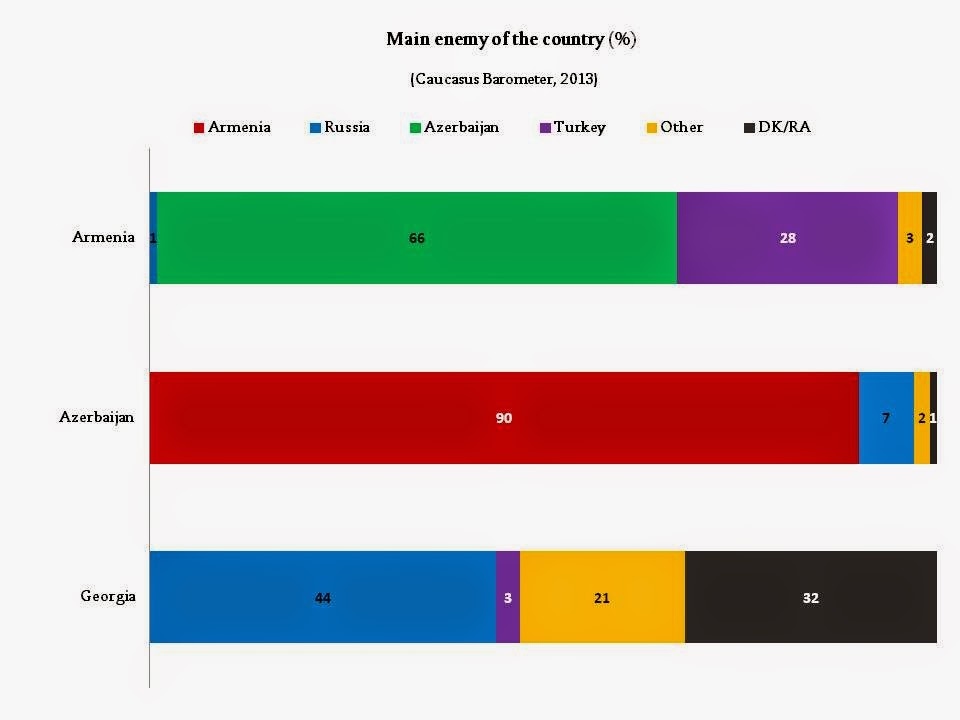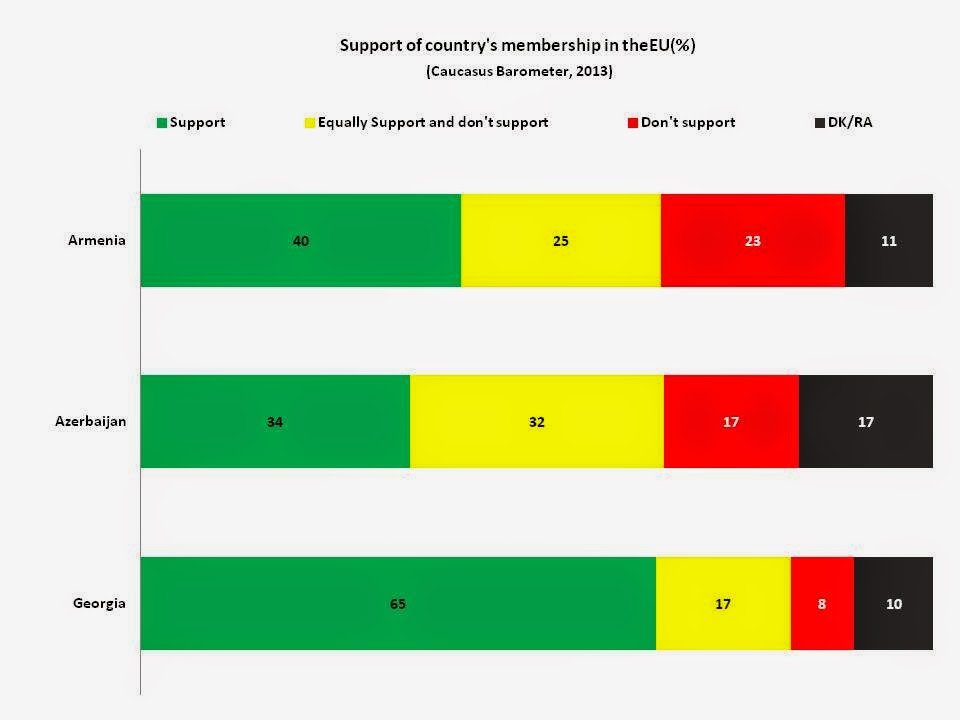
Note: In this graph the option “no one” was grouped to “other.” The “other” option also includes Ukraine, Armenia, Iran, Georgia, Poland, Germany, Israel, Lithuania, Europe, Italy, China, Belarus, Baltic countries, Czech Republic, the Netherlands, Nagorno-Karabakh, Northern Cyprus, Spain, Great Britain, Greece, Latvia, Abkhazia and Pakistan.
As for enemies, Georgians perceived Russia, Azerbaijanis named Armenia, and Armenians considered Azerbaijan as the main enemy of their countries. Both figures show that the opinions of Georgians are not as well defined as in Azerbaijan and Armenia; nearly a third of Georgians said they “don’t know” or “refuse to answer”. Thus, these are quite diverse preferences for countries in this small region.
Note: In this graph, option “no one” was grouped to “other”. The “other” option also includes USA, Iran, Georgia, Everyone, Israel, Great Britain, Czech Republic, Abkhazia, China, South Ossetia, Ourselves and Germany.
Differences in opinions regarding the European Union, in particular, are not as stark as in the cases of the perceived main friend or enemy. CB results shown below indicate that support for the EU is stronger in Georgia, but that there are stable attitudes towards the EU, although much lower, in Armenia and Azerbaijan. This could reveal a potential common foreign policy in the future.
Note: In this graph “support” is a combination of the responses “rather support” and “fully support”, and “don’t support” is a combination of the responses “rather not support” and “don’t support at all”. Question text: “To what extent would you support country’s membership in the EU?”
This blog has discussed the possibility of creating an alliance based on a commonly-perceived enemy or friend in the South Caucasus and come to the conclusion that it is not realistic in the near future. To explore similar issues, we recommend using our ODA tool here or reading this blog post detailing how the three countries perceive doing business with and getting married to one another.
By Edisher Baghaturia


